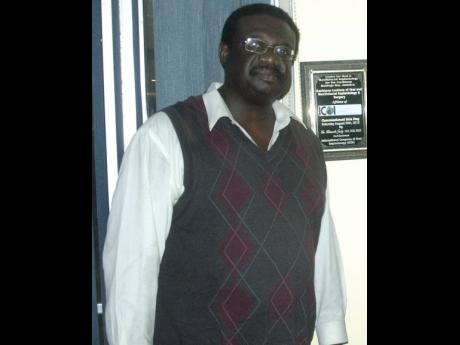Why churches, bars but not CSEC and CAPE? – Dr Ogunsalu
Western Bureau:
Senior lecturer at The University of the West Indies’ Faculty of Medical Sciences, Dr Christopher Ogunsalu, is questioning the Government’s decision to open bars and churches, while seemingly reluctant to facilitate the sitting of the Caribbean Secondary Education Certificate (CSEC) and Caribbean Advanced Proficiency Examination (CAPE) examinations in July.
In fact, the Nigeria-born Ogunsalu, who is a naturalised Jamaican, thinks the decision to open the churches and bars have no scientific basis and could ultimately prove to be a dangerous proposition.
“This is a dangerous proposition, and I suggest that the prime minister must immediately consult with the health ministry and its scientific leaders in order to reconsider his position on these reopening,” said Ogunsalu.
“The number of confirmed cases (COVID-19) in Jamaica, as of today, is coming close to 520. It is not safe, even with distancing, for people to congregate in these two (churches and bars),” argued Ogunsalu, who believes the prime minister’s decision was based on pure sentiment and pressure, which could be politically related.
As it relates to students sitting CSEC and CAPE examinations, Ogunsalu believes that with these examinations lasting for just two-three hours, if spacious halls/auditoriums and even churches are used, with social distancing and the wearing of masks, these exams could go ahead as previously planned.
On Tuesday, The Gleaner carried a story stating that the Jamaican Government had parted company with its Caribbean counterparts on a July date to sit the CSEC and the CAPE tests, quoting minister with responsibility for education, Karl Samuda, as saying that Jamaica could not endorse the decision.
“The challenges are much greater (in Jamaica), and we don’t feel that we could make a commitment to hold those exams in July under the circumstances,” Samuda told a Jamaica House press conference.
LATE ENROLMENT
Acting on the assumption that by August the impact of COVID-19 will be significantly lessened, Ogunsalu thinks the sitting of the CSEC and CAPE examinations in July will most likely allow results to be out by the end of August/early September, thus allowing universities across the Caribbean not to be set back in taking in new students in September 2020 for the 2020-21 academic year.
“The universities in the Caribbean, especially The UWI, depend on student intake and progression of students to the next level to earn so as to finance their already-jumbled budget. I can state categorically that if the CXC examination sitting is not sustained for July, The UWI and other tertiary institutions may end up laying off a considerable amount of academic and administrative staff,” noted Ogunsalu.
Arguing against the background that churches could continue online and bars could remain closed with no adverse effects of the wider community, Ogunsalu seems concerned about whether or not the Government has its priorities straight.
LONG-TERM EFFECTS
“I am so disappointed that scientists and clinicians globally are so much agitated only by the immediate signs and symptoms of COVID-19 and forgetting the possible long-term effects of viral infections, irrespective of whether the infected person is hospitalised or not. We must remember that viruses have been linked to cancer formation, and this includes both DNA and RNA viruses. For example, Kaposi sarcoma can be caused by HIV even long after infection, and Epstein-Barr virus can cause cancer of the nasal pharynx,” said Ogunsalu. “The motive of the COVID-19 virus in unknown and all that we can do is to be careful. The prime minister of Jamaica must, as such, retract his promise to the bars and churches and show more empathy on the taking of CSEC/CAPE examinations in July, to tally with the rest of the Caribbean.”

